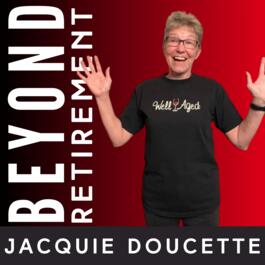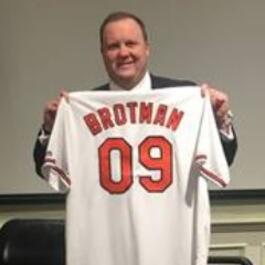
Let's Chat about Eric's Ideas
Hi everyone, and welcome to episode 137 of Beyond Retirement. Thanks for taking the time to hang out with me today! If you recall, I spoke with Eric Brotman last week and he talked about how life can be compared to an undergraduate program, with activities to be carried out in your freshman, sophomore, junior, and senior years of life in preparation for retirement. And he calls it graduation, not retirement, for a very good reason. If you haven’t listened to Eric’s interview yet, I recommend that you go back and listen to it now, then return to listen to this show. I know – I say that every week. But it’s true! I think my short little unpacking episodes, chatting about the ideas of the interviewee from the week before, hold way more value for you if you’ve listened to the episode that it’s based on before hearing me babble about what I thought of the topic. But it’s entirely up to you, of course – you’re the listener and the way you listen is all about you. So, as I mentioned, Eric says we shouldn’t be “retiring”, but rather “graduating” after we finish off all the prerequisite activities as we go through our life. One reason he gives for not using the term RETIRE is that the British English definition of “to retire” means to go to bed... and that’s hardly what we’re going to be doing when we finish working, right?! At least, by this point in the podcast, you should have developed the basic understanding that I’m a huge proponent of going out and doing something, rather than just sitting back with your feet up through the next 20-30 years. Of course, if sitting back with your feet up is what you WANT to do, then that’s perfectly okay. After all, it’s YOUR life – you’ve done what needs to be done for the number of years you needed to do it, and now it’s time to do what you WANT to do and I’m certainly not going to try to tell you what you want. First of all, I want to quickly review how Eric described the four stages leading up to what he calls graduation. He talked about the Freshman years, where you’re just getting started. That’s when there’s usually some debt and you’re focused on cashflow, maybe trying to figure out how to get a job that has some employee benefits, that sort of thing. Then come the Sophomore years, where you’re starting to settle down a bit, maybe getting married and having a family, looking for a house. Finances are important here, of course, as they are throughout your lifetime, but you’re still getting started. In your Junior years, you’ve hit your peak earning time, you’re paying taxes at probably the highest rate you’ll see, you’ve got little spare time for other things, life is busy and you’re starting to think about what comes next. Then your Senior years come along. You’re thinking about estate planning, whether you’re going to get any government or work pensions, when they might start, what you need to do to get them activated, and most important, you’re thinking about what comes next. This is the stage of life when you start to think about what your purpose is...is there some sort of legacy that you can leave for your family, or for others? I find it really interesting that this is a topic that comes up a lot in my conversations with my guests, and with people in general when we talk about our future. It’s almost like we hit the point where we realize that we’re not going to be here forever and suddenly we feel the need to be remembered. Or maybe it’s not even the need to be remembered, so much as the desire to do something that we feel is beneficial to people coming after us. We want to leave a legacy – something that will make the world – or at least some small part of it – a better place. It’s something that I spend a lot of time thinking about. I don’t mean that I’m spending hours pondering how I
From "Beyond Retirement"




Comments
Add comment Feedback